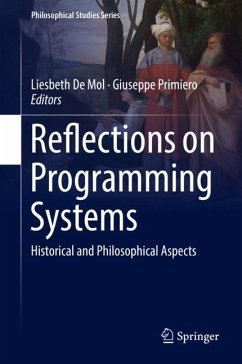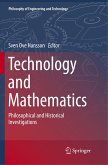This book presents a historical and philosophical analysis of programming systems, intended as large computational systems like, for instance, operating systems, programmed to control processes. The introduction to the volume emphasizes the contemporary need of providing a foundational analysis of such systems, rooted in a broader historical and philosophical discussion.
The different chapters are grouped around three major themes. The first concerns the early history of large systems developed against the background of issues related to the growing semantic gap between hardware and code. The second revisits the fundamental issue of complexity of large systems, dealt with by the use of formal methods and the development of `grand designs' like Unix. Finally, a third part considers several issues related to programming systems in the real world, including chapters on aesthetical, ethical and political issues.
This book will interest researchers from a diversityof backgrounds. It will appeal to historians, philosophers, as well as logicians and computer scientists who want to engage with topics relevant to the history and philosophy of programming and more specifically the role of programming systems in the foundations of computing.
The different chapters are grouped around three major themes. The first concerns the early history of large systems developed against the background of issues related to the growing semantic gap between hardware and code. The second revisits the fundamental issue of complexity of large systems, dealt with by the use of formal methods and the development of `grand designs' like Unix. Finally, a third part considers several issues related to programming systems in the real world, including chapters on aesthetical, ethical and political issues.
This book will interest researchers from a diversityof backgrounds. It will appeal to historians, philosophers, as well as logicians and computer scientists who want to engage with topics relevant to the history and philosophy of programming and more specifically the role of programming systems in the foundations of computing.








